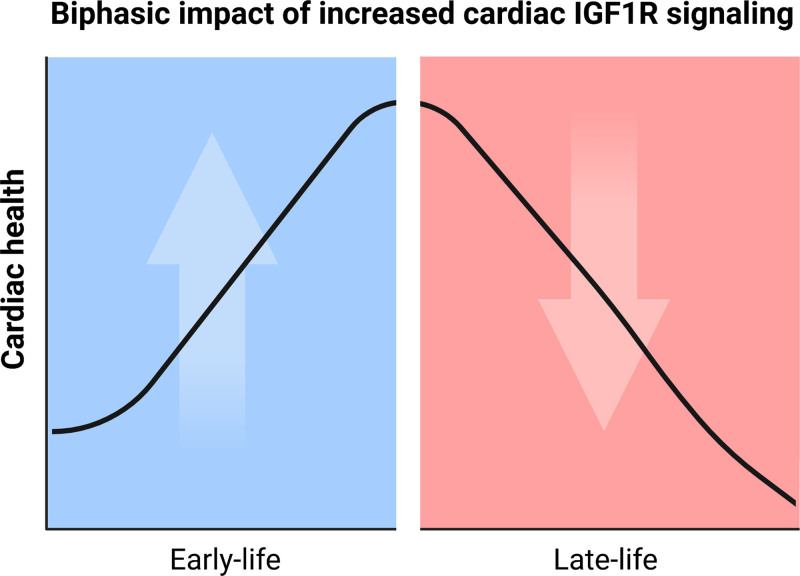Figure 6.
Graphical summary of the role of cardiomyocyte IGF1R signaling in regulating cardiac health during the course of life. IGF1R signaling proved crucial for cardiac homeostasis during early life as young IGF1Rtg mice exhibited cardiac benefits in association with increased IGF1R signaling, whereas IGF1R activity was deleterious for cardiac function in aged IGF1Rtg mice. Conversely, reduced cardiac IGF1R signaling in dnPI3K mice was associated with lower cardiac performance and increased risk of mortality in early life, but extended cardiac healthspan and maximum longevity later in life. dnPI3K indicates mice harboring an inactivated (dominant negative, dn) p110α isoform of phosphoinositide 3-kinase; IGF1, insulin-like growth factor 1; IGF1R, IGF1 receptor; and IGF1Rtg mice, mice overexpressing human IGF1R specifically in cardiomyocytes.

